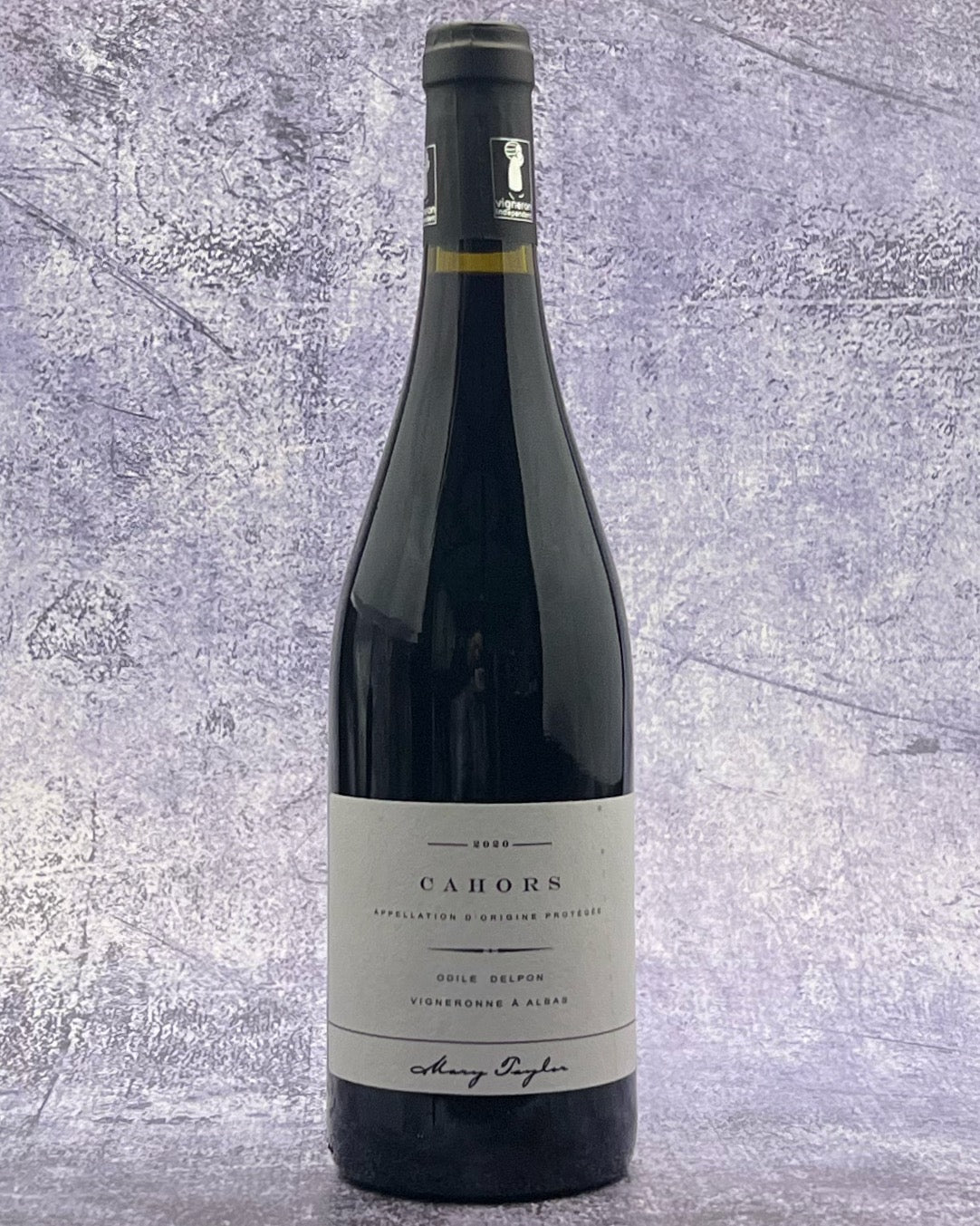Description
From: Cahors, France
Varietal: Malbec
Tasting Notes: Aromas of mixed dark blackberries, raspberries, plum, clove-laced spice, wood tones, and lavender offer a sneak peek at similar sensations on the palate of this savory, peppery wine of refinement.
Pairing: This Malbec would pair excellently with lighter cuts of beef, cassoulet, pâtés, and roasted duck, lamb, or pork. Earthy ingredients like mushrooms, shallots, sage, rosemary, mint, and cumin will complement and bring out the wine's more fruity elements. Meanwhile, you could enjoy this wine with more everyday meals, including charcuterie dishes, chili, pot roast, meatloaf, or hamburgers. We’re sharing Melissa Clark’s recipe for Grilled Pork With Whole Spices and Garlic Bread.
About, from Mary Taylor Wines. Our thoughtful friend Didier Pelvillain is the winemaker here, although we list his mother Odile Delpon on our label, as 32 years ago it was she who planted these vines in the single parcel where our grapes are grown called “Inspiration 7.9.” This is one parcel of many which are speckled along the terraces hovering over the Lot River. Here the vines are trained as single guyot and we have only Malbec growing at a yield of about 50 hectoliters per hectare.
Odile inherited the family vineyards, tobacco farm, and saffron plantation in Albas in 1968. She developed the winery with her husband Claude until their son Didier took over a few decades ago. He expanded with a second domaine in nearby Preyssac in 2013. Total vineyards cover 52 hectares. Cahors once covered 48,000 hectares of vines, but after phylloxera has shrunk to 4000 hectares. Known as the ‘black wine’ and well loved, Cahors was widely exported throughout Europe and the Middle East until phylloxera devastated the vineyards starting in 1865.
Nowadays there is less wine made in Cahors, but generally the quality is much higher. For Didier, yields are much lower and grape selection is important. Soils here are clay and limestone. Didier farms at the highest level of sustainability and biodynamic conversion is in process. Only indigenous yeasts are used. The outcome is a floral, savory, peppery wine of refinement – clean and fresh – dark plum fruit with more mineral qualities than barnyard.
“I like to go into vineyards on Sunday night when it is quiet, to smell the vineyard and think about the level of maturity”… This is intuitive wine making at its best.

